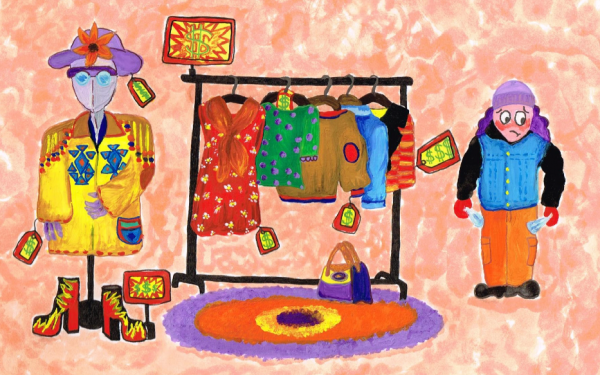Tokyo Police Club’s last ride
The indie rock icons are making the most of their final chapter
Believe it or not, Tokyo Police Club is breaking up.
You’d be forgiven for not believing it—the band can hardly believe it themselves, sometimes.
After 19 years together, they will play four final shows in Toronto and disband with the end of Tokyo Police Club: The Final Tour.
“I’m sure if you ask the hamster how crazy he’s going to feel when he’s off the wheel, he wouldn’t know how to answer,” Graham Wright said.
Wright plays guitar and keys for Tokyo Police Club, and when it’s his turn on the tambourine they pass around like a bottle, he takes to it with more passion than you thought the instrument could elicit.
“It’s still very much a mindfuck on paper,” Wright explained. “All the repetitiveness and normalcy of [touring] weighs so much more heavily than the theory of things changing, right? So, I’m finding my biggest emotional surprise is how normal I feel.”
It is a mindfuck. It’s hard to imagine Tokyo Police Club not together, especially since supernatural chemistry has always been at the heart of the band’s proposition. It’s what took them from limbo to Letterman in a matter of months and earned them early Strokes comparisons. It kept them from becoming irreparably out of touch when the Strokes did.
This band’s magic is in arrangements greater than the sum of their parts.
The best Tokyo Police Club songs feel like they’ve been arranged by iconic Chicago Bulls coach Phil Jackson, their performances coordinated in an indie-rock triangle offence. They have an instinctive, if not telepathic understanding of pockets, of breath and space. The rhythms are bold and distinct, and the idiosyncrasies fit together like puzzle pieces.
Brendan Bourke, vice president of publicity at The Syndicate, has worked with the band for 18 years. He said that, even as they grew up and perspectives changed, the band’s camaraderie had remained constant.
“The fact that they’ve been playing together, the four of them, for close to two decades, you know that they feed off of each other really well onstage and you can tell that they love every moment,” Bourke said.
Tokyo Police Club’s four-show swansong series culminates on Nov. 29 at the History concert venue in Toronto, a 45-minute drive from their hometown of Newmarket, Ontario. In the meantime, Wright said it’s important to remember that each show’s crowd is experiencing their breakup in real-time.
“There are people here to hear the tree falling in the forest,” Wright said. “They’re in the middle of their day, their week, their month, their life, and they’re experiencing this show as the end of the hamster wheel. They’re having this emotional reaction because, for them, it really is the last night, but for me, it’s just like, night 11 of 47.”
But Tokyo Police Club’s final Montreal show at Théâtre Beanfield on Oct. 12, marked a full circle moment for a band that calls Montreal its second home.
“Montreal was the home of our very first actual show as Tokyo Police Club, where it wasn’t just ‘pay 20 bucks to see six metal bands,’” drummer Greg Alsop recalled. “We got accepted to POP Montréal in October 2005, almost 19 years to the day of this tour’s Montreal show.”
The band bussed down in 2005 to stay with bassist and frontman Dave Monks at his McGill residence, propping up the bed in a friend’s room to improvise a rehearsal space.
“Because of that show, we got signed to Paper Bag Records, and were able to put out our first EP,” Alsop said.
“If we hadn’t got accepted in Montreal, we had already decided that we were going our separate ways—we’d jam together on holidays or whatever, but it would be time to get real, get responsible,” Wright added. “If it wasn’t for Montreal, there would be no Tokyo Police Club.”
The band’s Montreal set finished with “Tessellate,” guitarist John Hook’s riffs swirling like stars around a cartoon bear’s bonked head and the crowd interjecting claps at all the right moments, playing their hand in the supernatural chemistry.
When the band left the stage, the cries for “One more song!” urgently filled their absence. After all, that one more Tokyo Police Club song would be Montreal’s very last.
Eventually, the band gave in—of course they did—and closed with fan favourite “Your English is Good.”
When those caffeine-high drums and powertool synths faded, the band gathered around Alsop’s kit as if to say a small goodbye. The band stood together to bow, cheers washing over them like sheets of rain. And then, quietly, Monks folded the setlist up into a paper airplane and sent it sailing over the crowd.
This article originally appeared in Volume 45, Issue 4, published October 22, 2024.





Frédérique_Ménard-Aubin-8588_(1)_(1)_1_600_375_90_s_c1.jpg)

